
























If you’re looking for transfer scholarship opportunities, education-enhancing experiences, and return on your tuition investment, take a good look at the University of Arizona.
The National Science Foundation ranks Arizona among the nation’s top 20 public research institutions. As a result of its Research I status, Arizona connects students with unique opportunities to apply their learning outside of the classroom. You may work on a research project, participate in an internship, get involved in student government, or take advantage of many other opportunities that will help you build experience to impress future employers.
Whether you choose to learn in person or online, you’ll have access to Student Engagement and Career Development, a free resource that can help you prepare for your career.
With all of the knowledge and experience students gain here, it’s easy to see why both The Princeton Review and Forbes have named Arizona a “Best Value College.” Thanks to a unique combination of exceptional academics and diverse experiences, an Arizona education empowers you to do more, learn more, and achieve more.
As a University of Arizona graduate, you could also earn more over the course of your career. According to PayScale.com, Arizona Wildcats have the highest starting salary earning potential among alumni from Arizona’s public universities.
The University of Arizona is the first four-year public university in the state of Arizona to be federally recognized as a Hispanic Serving Institution (HSI).

The Military Order of the Purple Heart has designated the University of Arizona as a Purple Heart University in recognition of its support of military members, including veterans and their families.
The University of Arizona is ranked No.
3 in the West, No. 14 overall, and No. 12 among public universities in the Military Times “Best for Vets: Colleges 2021” list.
At Arizona, student-veterans find community and support through the Veterans Education and Transitions Services (VETS) program. VETS offers a comprehensive set of services to help student-veterans transition to the university environment, find success throughout their education, and obtain meaningful employment. You can learn more about VETS by visiting vets.arizona.edu.
In addition to its main campus in Tucson and Arizona Online, the University of Arizona offers learning locations across the state. With sites in the Phoenix-Metro area, Yuma, and throughout Southern Arizona, it’s more convenient than ever to earn your bachelor’s or master’s degree from Arizona.

Whether you are considering a career
in IT, health care, business, education, or another field, our statewide locations offer in-demand degrees close to home. Many of our programs are nationally recognized, including Nursing, School Psychology, Engineering, and other programs in rapidly growing industries. To see all of our statewide locations, visit transfer.arizona.edu.
competitive scholarships for Fall and Spring semester-start students like you, including one of the most generous Phi Theta Kappa Scholarship in the state and an array of other financial aid options. Learn more by visiting the Office of Financial Aid at financialaid.arizona.edu.

(Whether You Learn In Person or Online)
Ranked #7 as the Best Online Bachelor’s Program in the Nation (U.S. News & World Report), Arizona Online gives you the freedom to earn your degree on your terms. And whether you plan to attend classes on campus or online, you may be eligible for one of our transfer scholarship awards. Learn how you qualify and find more ways to pay for college at www.arizona.edu/ admissions/transfer/cost.
The University of Arizona offers
The University of Arizona has reimagined what student achievement can look like with the creation of the new Student Success District, located on the university’s main campus in Tucson, Arizona. Two libraries, a former gym, and a new student success building have combined many education-enhancing resources in the core of campus. Meet with academic advisors, get individualized career support, and enjoy a wide array of health and wellness resources within this cutting-edge facility.
Alife of significance means being able to step into a role that makes a difference – regardless of where that is – at work, among friends, with family. Today, we all aspire to be part of the solution. Few things in life prepare a person for that as well as education does. That’s why we take our mission seriously and wrap all we offer around it.
We built Ottawa University Arizona (OUAZ) from the ground up on what is now a beautiful 240-acre campus in Surprise, where we collaborate with the city and all in our community to offer our students an unprecedented college experience.

When students enroll at OUAZ their college experience is rich in opportunities to dig in and participate. From varsity sports to club sports and organizations that fulfill personal goals and passions, we offer scholarships for those who want to get involved:
• Band
• Bowling (Men’s and Women’s)
• Campus Ministries
• eSports
• Leadership •
• Wrestling (Men’s and Women’s)
The OUAZ student body is comprised of first-in-their family college students, second and third-generation college students, transfer students and working adults who have earned college credit, but not yet their degrees. We offer degree programs on-campus and online. Here’s why: We believe that no matter where you are on life’s journey... your degree from OUAZ helps you get to your next milepost.
In fact, we are so committed to helping our students develop work-ready and practical life skills that we’ve eliminated most standard classes on Wednesdays, clearing way for our one-of-a-kind Personal Growth Days. These are days where everyone on campus comes together (even faculty and staff) to be inspired by motivational speakers, hear testimonials and learn more about timely topics. Participants are led in singing by a praise band.
Next up in the day are skills development workshops, which are virtually identical to those offered in professional development
workshops by corporations and nonprofit organizations. The workshops aim to hone and shape student competencies in areas such as public speaking, project management, leadership, writing for business, negotiations, personal finance, conflict management and much, much more.
OUAZ offers options that allow students to create their own personalized course schedules, catering to their learning
preferences and timetables. Students can complete a course in four or eight weeks with more intense work or they can choose to take the course over 16 weeks.
Terms start at eight times throughout the year to make it more convenient for students to come aboard the OUAZ experience. Our students and graduates tell us that the best way to see all OUAZ has to offer is with a campus visit scheduled here or by calling (855) 546-1342.
Ottawa University is accredited by The Higher Learning Commission (hlcommission. org), a regional accreditation agency recognized by the U.S. Department of Education.
allows students to focus on their education, as well as expedite the completion of their bachelor’s degrees


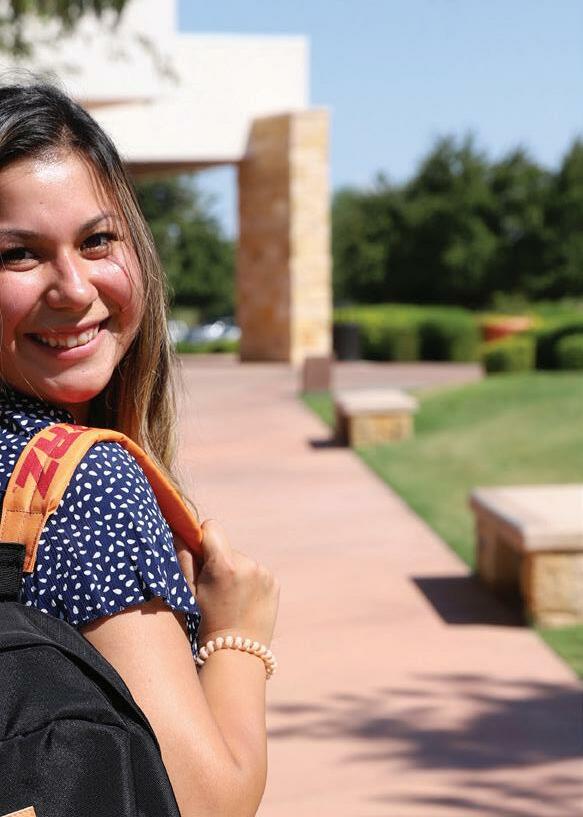






If you are interested in earning a bachelor’s degree, starting at a Maricopa Community College and transferring to a four-year university provides you with an affordable option. While you can transfer anywhere, the Maricopa Community Colleges have established transfer partnerships with quality, reputable colleges and universities. These university partnerships assist students in making a smooth transition from one institution to the next by maximizing your Maricopa credits. In addition, many university partners offer Maricopa graduates dedicated advisement and financial incentives such as transfer scholarships, waived application and/ or textbook fees, and special tuition incentives for military personnel. The Maricopa Community Colleges have partnerships with the following institutions:
Local (Arizona) Partners






• Arizona Christian University
• Arizona State University
• A.T. Still University
• Benedictine University at Mesa
• Chamberlain University
• DeVry University
• Embry-Riddle Aeronautical University
• Franklin Pierce University
• Grand Canyon University
• Huntington University Arizona
• Midwestern University
• Northern Arizona University
• Ottawa University
• Park University
• Prescott College
• University of Advancing Technology
• University of Arizona
• University of Arizona Global Campus

• University of Dubuque-Tempe

• University of Phoenix
• Upper Iowa University-Mesa Center
• Wayland Baptist University
• Wilkes University-Arizona Out-of state and/or online partners
• American Public University
• Antioch University Online
• Berklee Online
• Colorado State University-Global Campus
• Columbia College
• Columbia College Chicago
• Excelsior College
• FIDM (Fashion Institute of Design & Merchandising)
• Loyola Marymount University
• Middle Georgia State University
• New Mexico State University
• Northcentral University
• Old Dominion University
• Paul Quinn College
• Portland State University
• Purdue Global
• Regis University
• Southern New Hampshire University
• SUNY Empire State College
• Texas Southern University
• UAG School of Medicine
• Union Institute and University

• University of Maryland University College

• University of New Mexico
• University of Texas at El Paso
• Western Governors University
Explore University Transfer Options at maricopa.edu/academics/universitytransfer/partners

One in five Americans of working age has some college credit but no degree, according to the 2016 Stronger Nation report from Lumina Foundation, the nation’s largest private foundation focusing solely on increasing
American’s success in higher education. Because the majority of college students balance a combination of family responsibilities, work responsibilities, and schoolwork, it is not surprising that students often take longer than originally
Huntington University will connect your God-given desire to create with skills training and opportunities for your future. Our award-wining programs in animation, film production, graphic design, and television production feature industry professionals, state-of-the-art equipment, and a collaborative creative community that is more like a family.
• Top private digital media program in the country - 2022 BEA Award results
• All cameras 4k/HD, 2 large studios, Cintiq Pro Drawing tablets and multiple RED cameras
• Maricopa Community College transfer partner
• Competitive tuition rates
• Member of the Council for Christian Colleges & Universities
• Most student production awards for any university public or private at the 2021 Rocky Mountain EMMYs
Interested? Visit us at az.huntington.edu, email azadmissions@huntington.edu, or call (480)939-5074 for more information.
expected or never complete a college degree. In other words, “life happens.”
One way colleges and universities are helping students’ accelerate their progress toward graduation is through Prior Learning Assessment (PLA), which allows students to earn college credit for demonstrated mastery in settings outside the traditional classroom. Common sources of credit for prior learning include military training, professional licensure or certification, examination programs, and vocational education.
PLA can also save students money. For instance, a student who takes an Advanced Placement (AP) exam (one type of prior learning) in high school can earn credit for one or more courses, depending on his or her exam score. In the case of AP exams, for under a hundred dollars, a student can take one exam and potentially earn credit for courses that would have cost far more in tuition. Plus, when PLA helps a student graduate sooner, he or she may start a career or advance in the workplace sooner.
Students with advanced courses in high school, military experience, corporate training, or professional certification may have college credit and not realize it. If working adults have extensive work experience but no degree and are unable to advance without one, PLA can help make a college degree attainable. Students who plan to transfer from one institution to another should become familiar with both institutions’ PLA policies, because prior learning may be evaluated and applied differently.
At the Maricopa Community Colleges, a maximum of 30 credits for prior learning may be applied toward an associate’s degree. Within that maximum, up to 20 may be applied within a student’s general education requirements. Students should talk to enrollment services staff, including academic advisors, at their college to discuss the potential of Prior Learning Assessment within their degree or certificate program. Students may also be referred, when necessary, to faculty program directors for assistance in evaluating prior learning.




Having a clear idea of the required courses for your degree program is critical to completing college in a time-efficient manner, which most college students set out to do. In addition to consulting academic and faculty advisors, using online resources like the college catalog, degree checksheets, and transfer guides will provide the information you need to stay on track toward your educational goals.
But what if you don’t know what you want to study or which type of career to pursue? You don’t need to wait to start college until you have decided on a major. There are ways you can get off to a good start, even when you’re not quite sure where the road ahead will take you.
Countless resources to help you explore your options are at your fingertips and right on your college campus. Each of the ten Maricopa Community Colleges offers career services to students. Some of the most helpful online resources provided by the colleges include:
The Maricopa PipelineAZ delivers customized career planning guidance so you can set relevant academic and career goals that better allow you to plan for your future. You will be able to assess your personal career interests, skills and values, and explore occupations and major that could be a great fit for you. Click on the icon for Maricopa PipelineAZ on mcccd.pipelineaz.com.
Every college degree requires at least some general courses, which would apply to multiple majors; English, math, and science, for example. If you get started on these, and do research on career options in the meantime, you’ll buy yourself more time to consider your decision on a major. Important to keep in mind, though, is that specific general education courses may also be required for the major you eventually select. For example, nursing majors are required to take specific biology courses, so if they take astronomy or geology courses for science when they are undecided on their major, they will still need to take the required biology courses later. If you’re even considering a major or two (or three), share this information with your advisor so he or she can help you enroll in courses that count for one or more of the majors you are considering and will meet general education requirements.
You may be thinking, “Didn’t I just read the opposite?”, but a different and equally wise strategy for undecided students is to jump into what really interests you. Starting with

introductory level courses in majors you are considering may actually help you start to narrow in on your interests, and help make you comfortable in your first semester or two of college. In addition, your instructors are great sources for learning about the career options you may have if you pursue a degree in the academic disciplines they teach. Faculty can also provide a glimpse into higher courses in the major, which may help you decide if you are interested enough in the field to pursue it further.
It can also be beneficial, particularly for fulltime students, to take a combination of majorspecific and general courses. Once you decide on a major, there will be often be sequenced courses that cannot be taken in the same semester. If you take most or all of your general education courses early on, you may not be able to build a full-time schedule of major-specific courses later, since you can’t take all of them at the same time. Developing a one-to-two semester educational plan with an advisor, even if you don’t know your major, is possible and can help prevent delays in completing your degree.
If you just don’t know where to start on your quest for a major, the structure and support of a college course in career exploration or college success strategies is a great way to learn about resources available to you and receive professional guidance on using them. It also provides a set time for you to explore your interests and research careers-a task that may get set aside otherwise when you are busy with other classes. At the Maricopa Community Colleges, there are several courses you may want to consider. Check locations, dates, and times of these courses on maricopa.edu/students:
• FYE101/103 First Year Experience
• CPD102AB Career Exploration
• CPD115/AAA115 Creating College Success
• CPD150/AAA150 Strategies for College Success
The vast majority of math courses must be taken one at a time, in a prescribed sequence. Many students need to take several math courses to reach the level required for their major. Taking a free placement test at your Maricopa Community College (once you are an admitted student) will determine your starting level. Again, discuss possible majors with your advisor to find out if specific math courses are required. If several majors are being considered, take the high road by following the highest math sequence among the majors. You may end up having taken
higher math than required, but that will serve you better than falling short and having to try to pick up where you left off when you go back to meet any additional requirements.
A good thing about college is that there are a lot of choices. However, so many choices can be overwhelming. When choosing courses, it may not be apparent if or how the content will translate into your career. Part of the college experience is becoming a well-rounded, educated person, and what you learn may come in handy when you least expect it.
Think about what you were good at in high school or skills for which you have received recognition in the past. What are you curious about? Some of the college courses offered may be surprising; for example, you may not see how learning about banned books, rock music, or earthquakes and other natural disasters relate to your future. If you are intrigued by a course, consider taking it! It might fulfill a general education requirement (as do all three of the courses referred to above). It might help you with a current job or in your personal life. Ultimately, it may help you decide if you want to turn a strength or interest into a degree plan and career.
If you want to play it safe and take courses that apply to a wide variety of majors, select courses like “Introduction to Literature” over courses like “Literature of Southern Wyoming” (not really a class, in case you were wondering…). This is also helpful to remember if you are considering transferring out of state—if you take courses offered at most colleges and universities, it is more likely that they will fit in somewhere on your degree plan and transfer to other institutions.
Don’t create a past that will come back to haunt you, when it comes to your grades. Someday, when you apply to a competitive bachelor’s degree program or graduate school, your chances for admission can be affected by poor grades in courses you didn’t take seriously enough. If you are having trouble with a class, go to tutoring, communicate with your instructor, and be aware of course withdrawal and retake policies. Also, enroll in the number of courses you can complete successfully. A common mistake for new students is taking too many
courses at once in an attempt to move through college quickly. As you progress in school, you can take a heavier course load or speed things up by taking FALL or winter session courses when you know what is realistic for you.
As an undecided student, you can still follow a degree plan at the Maricopa Community Colleges. If you plan to eventually transfer to a university to earn a bachelor’s degree, the Associate in Arts is a flexible degree that fulfills general studies requirements for Arizona’s public universities, along with many private, out-of-state, and online institutions. When you begin to consider specific majors, consult an advisor to find out if the Associate in Arts is still the best fit for you or if another type of degree, such as an Associate in Business, Associate in Science, or Associate in Applied Science, aligns best with your major requirements and transfer goals. Earning an associate’s degree will formally recognize and celebrate your hard work, and can increase your marketability and earning power in the workplace. If you are going to transfer to a university to earn an additional degree, you will already be a college graduate while you continue to build on your success.
If you hold out on choosing a degree path until the perfect major comes along, you may just be in school forever. While finding a rewarding career is very important, sometimes, moving forward with your education and working in a related (or even somewhat related) position for a while is the only way to know if want to stay a career for years to come.
It makes sense to need time to do research and try different things to help you make a decision, so don’t be too hard on yourself for being undecided on a major. At the same time, keep in mind that most people do not stay in the same job for their whole career. With every step you take toward a goal, you’ll gain information to help you make future decisions.
Think about what you were good at in high school or skills for which you have received recognition in the past.
AZTransfer is a free online college planning tool that helps students know how their community college courses can transfer to Arizona State University, Northern Arizona University, and the University of Arizona. Below is an overview of AZTransfer. Visit www. aztransfer.com for details and to access free tools and resources to ensure a smooth transfer to ASU, NAU, or UA!
1. Take Arizona General Education Curriculum (AGEC) Courses. The AGEC consists of 35-37 credit hours of courses in English, math, social and behavioral sciences, physical and biological sciences, and arts and humanities.
2. Choose a Major and Degree. Decide what associate’s degree you want to earn at the community college and what bachelor’s degree and major you intend to pursue at the university. Make sure to choose community college classes that align with your degree interests!
3. Explore Transfer Pathways. Many of Arizona’s community colleges have pathway programs designed to offer students a smooth transition to the university. Learn about these programs on AZTransfer.com.


4. Complete Your AGEC and Associate’s Degree. Your associate’s degree includes your 35-37 credits of AGEC courses along with approximately 30 additional credit hours of courses required for your degree. Completing an AGEC and Associate’s degree is not required for transfer but is recommended.
A smooth transfer from your community college to Arizona State University, Northern Arizona University, or University of Arizona begins with the Arizona General Education Curriculum (AGEC).
There are three types of AGEC blocks designed for different types of community college majors— AGEC A, B, and S. AGEC-A. AGEC-A is for liberal or fine arts majors. Examples: English, Education, Communication, Dance AGEC-B. The AGEC-B is for business majors. Examples: Accounting, Economics, Finance, Marketing AGEC-S. AGEC-S is for majors with more rigorous math and science requirements. Examples: Biology, Chemistry, Engineering
1. A completed AGEC transfers as a block to ASU, NAU, UA, or any Arizona public or tribal community college, without loss of credit.

2. Completing the AGEC with a 2.5 GPA or better guarantees your admission to the universities.
3. The AGEC also gives students the opportunity to explore diverse subjects and obtain a well-rounded academic experience.
Build your transfer degree with three blocks of courses– AGEC, elective and common, and upper division university courses. Up to 64 community college credits can be transferred to the university and apply toward a bachelor’s degree. You may have already earned college credit in high school through dual enrollment and exams for credit. Make sure to factor these into your degree plan!
1. Completing your associate’s degree with a 2.0 GPA or higher will guarantee your admission to ASU, NAU, or UA.
2. You will have more credits to apply toward your bachelor’s degree.
Enter your course numbers to learn exactly how they are accepted for credit at ASU, NAU, and UA. aztransfer.com/ courseequivalency

AGEC COURSE SEARCH

Learn which community college courses fulfill your general education requirements and transfer as a block to the university. aztransfer.com/agec
If you’ve taken AP, IB, CLEP, or Cambridge exams, you may have already earned college credit! Find out if your exam scores qualify. aztransfer.com/examequivalency

Find out how dual enrollment courses at Arizona high schools transfer to the universities. aztransfer.com/ dualenrollment

Choose the most efficient and affordable path to a bachelor’s degree with MyPath2ASU™. As one of the nation’s top 10 institutions for undergraduate education, Arizona State University is committed to helping students create a seamless transfer to ASU. The MyPath2ASU transfer experience helps you complete prescribed coursework at your current community college that meets lowerdivision course requirements for your ASU major while fulfilling your associate degree requirements. When you create your MyPath2ASU, you will not only be able to plan your path to ASU, but also have direct access to self-help ASU transfer tools and support services.



MyPath2ASU is your suite of customized self-service transfer tools that help you:
Earn guaranteed university admission and into your MyPath2ASU major of choice if all requirements are fulfilled.

Select classes through customized course-by-course pathways to minimize loss of credit.
Save time and money by planning your path to degree completion.
Connect with ASU transfer coordinators, receive preenrollment services and invitations to special ASU events.

admission.asu.edu/transfer/maricopa
Step 1: Sign up for MyPath2ASU



Visit mapp.maricopa.edu, enter your Maricopa Enterprise ID (MEID) and password and click Login. Identify your current transfer institution, complete your profile and choose from more than 400 on-campus and online pathways


Step

Once you complete the MyPath2ASU™ sign-up, view your transfer courses by visiting mypath2asu.asu.edu . Enter your community college and ASU major. Remember, there is no need for you to sign up for a MyPath2ASU on the ASU website, as you have already signed up on the Maricopa website.
Step 3: Prepare to transfer to ASU
Meet with ASU transfer coordinators for assistance with applying to ASU and attend special ASU events. Apply to ASU one year before completing your MyPath2ASU.
Learn more by attending a MyPath2ASU virtual event

Join a virtual workshop about MyPath2ASU. In the interactive session, you’ll learn how to navigate the MyPath2ASU transfer experience, ask questions and start your seamless college journey to ASU. visit. asu.edu/live-hosted-visit
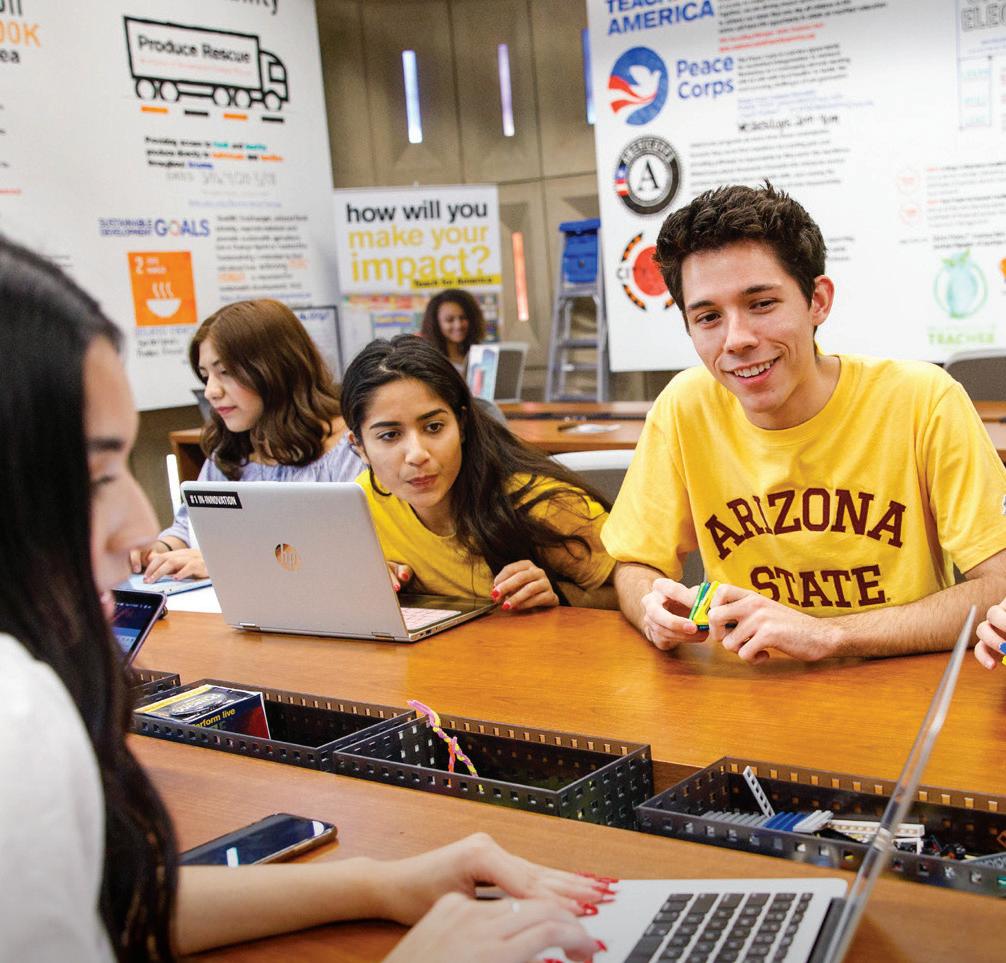

ASU Online supports the university’s charter to make education available to anyone, anywhere. Through ASU Online, you can choose from more than 200 programs offered 100 percent online by the nation’s most innovative university. You’ll learn the same curriculum designed and taught by our award-winning faculty and earn the same degree as on-campus students. At ASU Online, you’ll feel empowered to achieve your goals with success coaching, time management tools, technical resources, high quality courses and more. asuonline.asu.edu/ admission/transfer
Questions? Connect with your transfer coordinator.
Your ASU transfer coordinator is available to assist you on your transfer journey and provide support as you prepare for your transition to ASU. Connect via phone or email, or schedule a oneon-one appointment. admission.asu.edu/ contact/transfer
As an only child and a first-generation college student, Lianyue (Leia) decided to pursue higher education as a path toward better career opportunities and a more prosperous future.
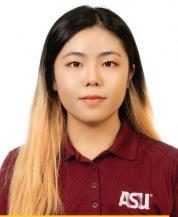
Originally from China, Leia decided to first attend Glendale Community College directly upon completing high school because of the affordable tuition and the ability to focus on her studies as a full-time student.
Signing up for the Maricopa MyPath2ASU program further helped guide Leia through the transfer process to Arizona State University, ensuring she took the right courses at the right time.
“It had a huge impact on me, where at first I felt lost being completely clear about what I needed to take and the path I needed to pursue,” she said. “It doesn’t just give you each specific course you have to take in order to finish a degree, but also the order of courses to take on which to build a foundation on. Most importantly, you can see how the intersection of each major or minor or even certificate that is provided by each college will give you the benefit to accelerate your progress.”
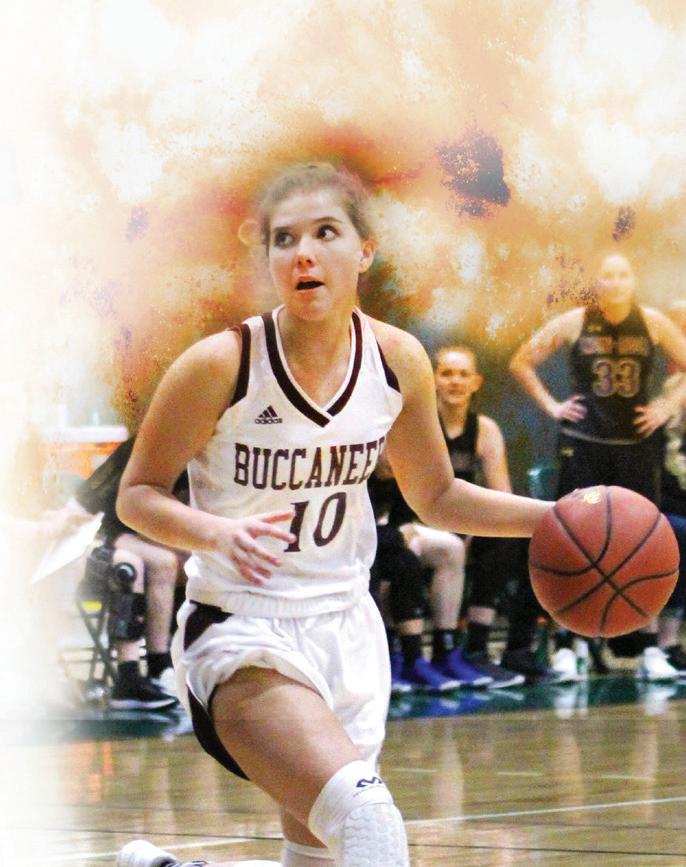

Upon completing her general education requirements, Leia decided to pursue a double major at ASU, studying both economics in the W. P. Carey School of Business and mathematics (statistics) in the College of Liberal Arts and Sciences because of the university’s rankings and outstanding academics.
“With hundreds of degrees offered and innovative, dual-degree and double-major options, I was able to customize my education,” she said. “I thought Arizona State University had the perfect blend of quality academics, research opportunities, diversity, an ideal climate and recognition. All of these qualities together can make a huge difference in a student’s career. ASU was the best for me in terms of academics and financial opportunities for building my future post-college life.”
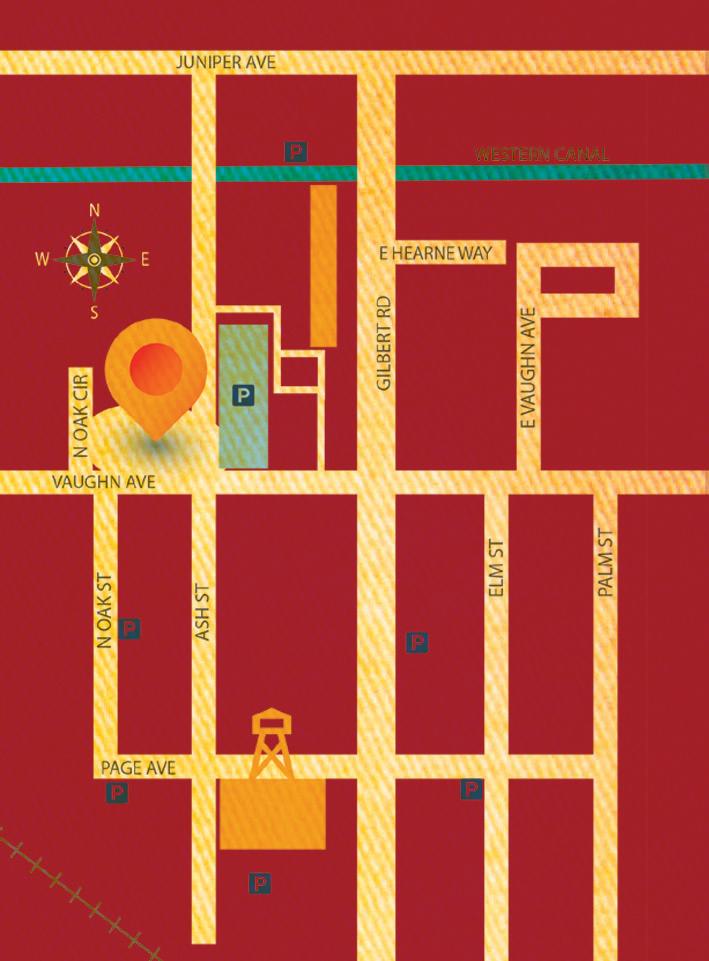



In addition, Leia has earned a certificate in political economy. Here, Leia shares more about her journey to ASU and the advice she has for future transfer students.
Question: Why (and when) did you choose your major?
Answer: Doing math is really not just the simple pleasure of “I do problems faster than

others do.” The pleasure of proficiency in the known field is far less than the pleasure of exploring the unknown. Of course, because exploration is an unknown world, there are risks, challenges, setbacks and failures. No one can guarantee that you will gain as much energy as you put in. Some people like adventure and some people prefer to live a regular and predictable life, which varies from person to person.



Q: What have you enjoyed most about your ASU experience so far?



A: What I have noticed while attending the ASU campus is how diverse this college is. I learned that this is the university that can take you to the place where you dreamed of being. Not only are there tons of resources to help you in a variety of ways, but you could also explore the many options, such as if you need counseling services, tutoring, clubs, or if you want to attend a job fair. I was surprised at how many different ways they had for students to get involved, and that really stood out for me. Instead of just being one student of thousands at the university, they really make it a point to go one-on-one and help you as a person.
Q: Are you involved in any clubs, organizations, research or internships?
A: Yes, I had been officially selected to be the
2021–2022 vice president of finance of Ascend at ASU. I was also the recipient of the Boggess Family Foundation Scholarship in Mathematical and Statistical Sciences in April 2021.
Q: What is one piece of advice you would give to a new transfer student?
A: I would say go for it! Generally speaking, it is the joy of thinking. But any subject requires thinking, such as why do you like that major more than others? It may be because of the high intensity, or the high degree of freedom in mathematics that has enabled me to learn and analyze and derive pleasure from.
Q: What are your plans after you graduate with your bachelor’s degree?
A: I will either stay here or go explore the big world, depending on where my career takes me. And probably in a year or so, I will apply back to ASU for my master’s degree.
Q: Is there anything else that you would like to share with us?
A: I normally spend time with my family and friends together. But in the sense of math, when the night comes, learning mathematics feels the same as appreciating a piece of art; solving difficult math problems is like building a rare wonder in the world. All that is needed is books, pens and paper, which can be done anytime, anywhere.
When a student joins the Lumberjack family, they find opportunity in every direction. Whether it’s at a statewide location, online, or at the scenic Flagstaff campus, NAU provides the resources and support transfer students need to achieve their career goals quickly and affordably.
NAU offers locations across the state to complete a degree, including on the Maricopa Community College campuses across the Phoenix metro area. For a more traditional experience, Flagstaff is consistently ranked among the nation’s best college towns. And innovative online and Personalized Learning options allow students a path to a respected NAU degree that fits their location and lifestyle.

Through NAU’s innovative partnership with Arizona community colleges, students can maximize their credits and take the courses they need to seamlessly transition to NAU when they’re ready. Students work closely with NAU representatives who help them stay on track as they complete their community college coursework. nau.edu/2NAU
NAU’s 90/30 programs allow students to earn 90 credits at a partnering community college, then finish the final 30 (usually in one year or less) at NAU. These programs are a great way to maximize college credits and earn a degree as quickly and seamlessly as possible. nau.edu/90-30
Beginning fall 2023, the Access2Excellence (A2E) program at Northern Arizona University will guarantee tuition coverage for every undergraduate Arizona resident with a household income up to $65,000. nau.edu/a2e
A college education is an investment in one’s future, and students have many options to help pay for it. NAU students receive more than $400 million in scholarships and financial aid each year. nau.edu/finaid
For Ixchel Christine Orellana, an NAU Elementary Education graduate who earned her degree at Mesa Community College, studying near home helped her pursue her goals.
“I was able to take NAU classes while remaining in my residence here in the East Valley,” she said. “I always knew I wanted to do something in life where I was helping people on a daily basis.”

With the help of career-specific scholarships at NAU, Orellana is realizing her vision as an educator and building on her life experiences to uniquely serve her future students.
NAU offers elementary education as well as special and elementary education programs at the following Phoenix area locations: ChandlerGilbert Community College, Estrella Mountain Community College, Glendale Community College, Mesa Community College, Paradise Valley Community College, Phoenix College and South Mountain Community College.










Academic advisement is a vital resource for students at every stage of their college education. New students rely on advisors to inform them about the enrollment process, available services, and life as a college student. Continuing students need advisors to help them stay on track to reach their goals and provide or verify program information. Students preparing to graduate and transfer to a four-year college or university depend on advisors to explain transfer options, clarify transfer admission and degree requirements, and support them in making the transition from one institution to the next.
You should expect the best from your advisors, but it is important to keep in mind that the student-advisor relationship is a partnership. In order to build a positive student-advisor connection, consider the following responsibilities.
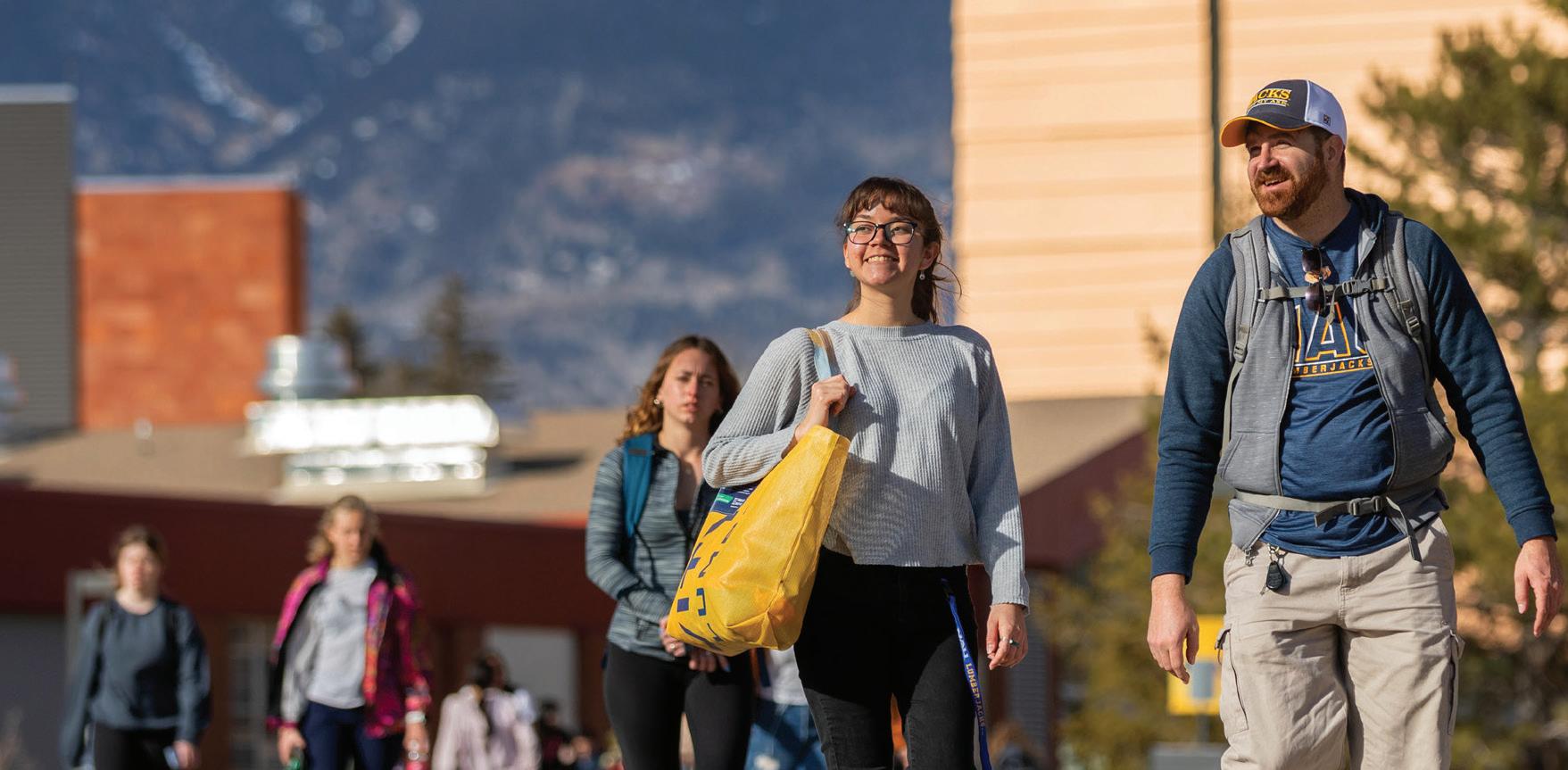





• Clearly communicate program requirements, institutional policies and procedures.
• Maintain a broad knowledge base and continuously work to keep up-to-date.
• Listen effectively, and ask questions to
understand your needs.
• Provide appropriate referrals to campus resources.






• Work collaboratively with you to develop a clear and comprehensive educational plan (sometimes referred to as a program of study, semester-by-semester plan, or something similar)
• Encourage and guide you in defining and developing realistic goals.
• Inform you about online resources for academic information and support services.
• Be realistically accessible to you: in-person, by telephone, e-mail, or web access, and respond to reasonable requests in a timely manner.
• Help you gain the ability to assume responsibility for your educational choices and achievements, and learn from your mistakes or setbacks.
• Maintain confidentiality in accordance with the institution’s policies and federal and state laws.
• Meet with your advisor each semester (or as often as your college recommends) to discuss
your progress. Depending on the size of your college and how much you are able to do on your own after initial visit(s), sometimes email or phone advisement is more efficient.
• Come prepared. The first time you see an advisor, bring your placement test scores, transcripts from other institutions attended, and/or any documents you think may be helpful that are not already in your college’s computer system. If in doubt, call ahead and ask what you should bring. For subsequent advisement sessions, bring degree check sheets, transcripts, and any other materials your advisor provided at prior meetings.

• Take notes during your advisement sessions. Make sure you and your advisor are clear on any follow-up tasks you need to do.
• Use what you learn from your advisor to better help yourself. Advisors are teachers, and want to empower you to lead the way with your education. Don’t expect your advisor to always give you a list of university requirements or build your class schedule; instead, work together on completing tasks and gathering information in order to become more self-reliant as a student. This does not make the advisor’s role unnecessary. It means the advisor can assist
you with more complex enrollment or academic issues, and you won’t need to wait for them to do things you can do on your own.
• Ask questions, and clearly and honestly answer your advisor’s questions. Understanding each other builds trust in your partnership, which will support your overall educational experience.
• Research college and program information to increase your knowledge on requirements, policies, and procedures. Being informed will help you make good decisions and know what you need help with.
• Be engaged in the conversation and accept responsibility for your actions as a student. Your advisor wants you to succeed, but cannot make you succeed. Even if you are unsure of yourself or your goals, your advisor needs to know that you value your education and are ready to do your part.
With both of you giving your best effort to collaborate, you will be able to have a great college experience, feeling supported, informed, and enabled to reach your goals. When you and your advisor work as a team, you will win, and your advisor will be right there to cheer you on for whatever comes next.
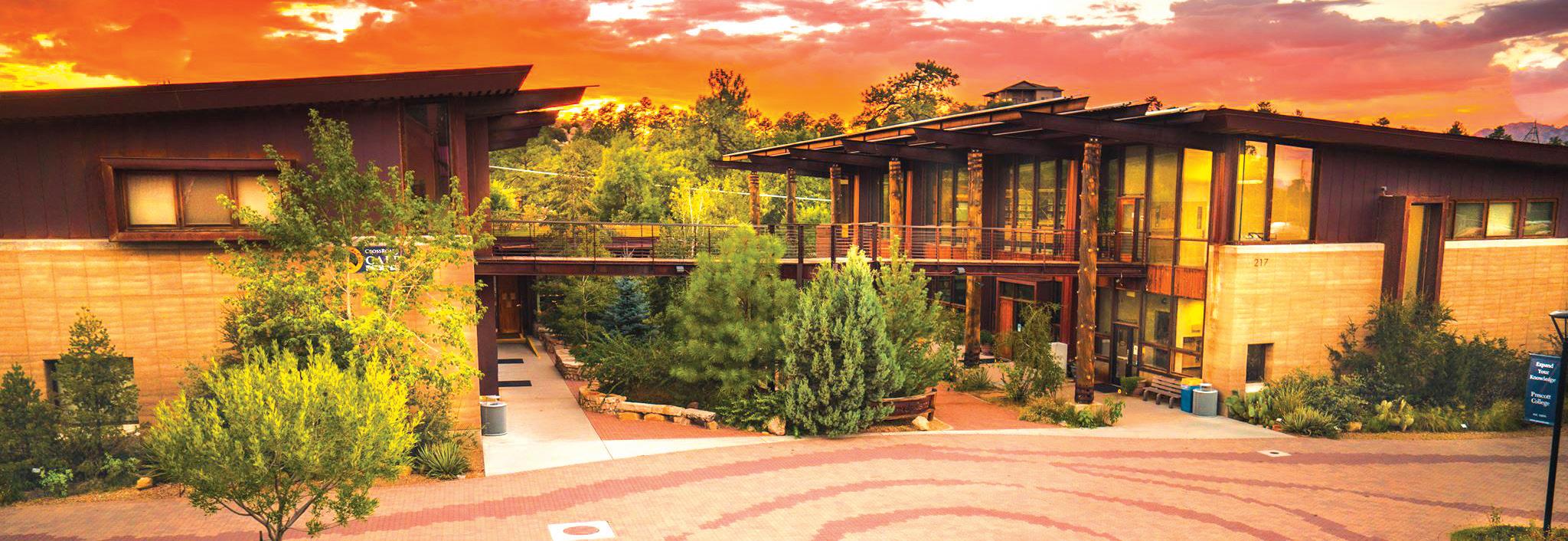
At Prescott College, your curiosity is your compass and your instructors are your guides. You’ll ask the questions you want answered and then you’ll dive into the research to answer those questions. Courses are problembased and solution-oriented; you’ll work alongside other students to solve both local and global issues and help shape a more environmentally sustainable and socially just world. Through strong community connections and project-based learning, you will become deeply engaged in direct application of your knowledge and skills. You will work and learn alongside expert practitioners, forming mentor relationships that will build your professional networks and enrich your time at Prescott.
We believe that you should have the opportunity to design your own path that aligns with your goals. You will work with faculty advisors to design your own independent studies, pursuing your interests, on your time, in your way.

Our online application is free and requires only a short autobiographical essay and official transcripts from high school and any previous colleges you have attended. Every transfer student is assigned an admissions counselor to support you through every step of the process. Every application is automatically considered for available scholarships at the time of admission. Contact your admissions counselor with any questions regarding deadlines you should meet in order to receive

our highest-valued scholarships.
Where
You can pursue any of our undergraduate degrees on-campus in Prescott, or you can continue your impact with mentors and professionals in your own community by completing your degree online.
Pursue undergraduate degrees in: • Adventure Education • Arts & Humanities • Arts & Letters • Education and Teacher Preparation • Environmental Studies • Interdisciplinary Studies • Psychology and Human Development • Social Justice Studies • Sustainability Management • Sustainable Community Development • Sustainable Food Systems
Undergraduate students can begin graduate coursework during their last semester of their undergrad program to accelerate the completion of their M.A., M.S., or M.Ed. Cross-listed courses count toward both degrees, and you only pay the undergrad tuition rate, shortening the cost and time to finish both degrees.
All of your Maricopa coursework that is 100-level and above in which you receive a grade of C- or better will transfer in toward your Prescott College degree. We accept up to 90 semester credits.
As transfer student Amy Shunk explored her options to finish her bachelor’s degree, one of Prescott’s master’s degrees was what first caught her attention but she was concerned about how her previous credit would transfer. “Before I came here I had two and a half years taken at other institutions. The fact that Prescott College said, ‘Yes, we can fold that in and here’s how,’ was really cool because you wouldn’t necessarily think that someone with a bunch of premed courses could slide in to Prescott College.”


Transfer student Arlet Miranda was relocating to finish her degree and spoke to the relationship she built with her admissions counselor, “We made a connection instantly. Every week, if not every day, I was emailing her with questions about every little detail I was thinking about as I was preparing to move out here.”
Both students are completing their bachelor’s degrees and are continuing their impact by pursuing their accelerated master’s degrees in Social Justice & Community Organizing, and Counseling, respectively.





















Six Cyber Intelligence and Security students from Embry-Riddle Aeronautical University’s Prescott Campus ranked fourth overall and first among undergraduate teams at the Department of Energy’s 2021 CyberForce Competition in November.

In this year’s mock scenario, seniors Kestrel Carlough, Logan Knapik, Ethan Nadzieja, Ashton Richards, Brian Tigges and Grant Watts were tasked with securing and defending a hydropower plant from cyberattacks.
“Participating in the competition has provided me with leadership and technical
experience that likely can’t be matched by other opportunities,” said Ethan Nadzieja. “It was a unique experience unlike anything I had done before.”
The team spent three weeks prepping their assigned virtual network before competition day. Their hard work resulted in a perfect score on system documentation
– something no other team accomplished.

“To do well in the competition, we not only had to ensure that necessary services were running at all times, but we also had to prepare thorough documentation, present our findings to a panel of Chief Information Security Officer volunteers and defend our network against professional penetration
testers,” said Ashton Richards.
Students in Embry-Riddle’s College of Business, Security and Intelligence have participated in the immersive competition since 2018. Along with firsthand experience in issues related to national security and intelligence and working in a complex operational technology environment, students gained valuable face time with industry leaders at the virtual job fair.
“We highly recommend this experience to students looking to build a deeper understanding of realistic cyber defense scenarios,” Richards said.

Five alumni from Embry-Riddle Aeronautical University’s Prescott Campus are part of the first group of Embry-Riddle students chosen to commission as space operations officers in the U.S. Space Force.
The cadets are among only 250 competitively chosen nationwide in 2020 to serve in the USSF. All were part of U.S. Air Force Reserve Officer Training Corps program, and all but one majored in Aerospace Engineering with a
concentration in Astronautics.
One cadet from EmbryRiddle’s Daytona Beach Campus was also selected for a Space Force commission.
“Serving in the USSF gives me the opportunity to shape the future of the American presence in space,” said cadet Garrett Foster. “As
modern technology continues to develop, protecting our space assets is becoming more and more important.
It’s not every day that a new military service gets stood up.”
Cadet Joselyn Rabbitt believes that commissioning into the USSF provides her the best chance to fulfill her dream
of becoming an astronaut. After her freshman year, she interned at NASA and was able to sit in on satellite operations.
“That was the moment I knew space operations was the job for me,” Rabbitt said.
For cadet Thorin Compy, the opportunity to be a part of the USSF straight out of college, and help influence how the organization operates, still surprises him.
“I would have never thought I’d be doing anything this cool,” Compy said.
Top-rated Aeronautical/Aerospace Engineering programs Nation’s 1st College of Business, Security and Intelligence 93% of graduates are employed or continuing their education within one year of graduating Students from 50 states and 41 countries Innovative STEM Education Center featuring the Jim and Linda Lee Planetarium 13-time National Champion Flight Team Nestled a mile high in the Bradshaw Mountains between Phoenix and the Grand Canyon, Prescott is renowned for its excellent seasonal weather and outdoor adventure. Not only is Prescott home to interconnected hiking trails, beautiful bike paths and four pristine lakes, but residents are never more than a day’s drive from 10 national parks. Together, Embry-Riddle and Prescott offer students endless opportunities for discovery and growth in and out of the classroom.

Are you considering going back to school? You are not alone. Adults of all ages are returning to the classroom to increase their earning potential, conquer a delayed dream or just to learn a new skill. As a Maricopa Community Colleges student, you will have access to ten colleges with various academic programs and flexible class scheduling. Regardless of the cause, here are some reasons why you should dust off that backpack. College isn’t just for those graduating high school students anymore.
Making a financial decision can be an intimidating task, however investing in education to improve your future is important. Students are eligible for Maricopa Community College District (publicly funded) and Maricopa Foundation (privately funded) scholarships for various amounts to cover tuition and/or expenses. Please the visit Scholarship webpage (https://my.maricopa.edu/financial-aid/ scholarships) for more details on how to apply.
The Financial Aid Answer Center will also discuss all options such as grants, scholarships, work study and federal loans in-person and over the phone at 1-888-9944433. You can also visit Paying for College (https://my.maricopa.edu/how-pay) for more information.
*subject to change annually
Did you attend a trade school or receive any certifications since high school? Or did you begin your collegiate career, but then take a break? If so, you may be able to apply that college level learning to your degree as Credit for Prior Learning (also known as Prior Learning Assessment). Maricopa colleges can award up to 30 semester credits for prior learning toward an associate’s degree, including up to 20 general education credits. Consult an academic advisor to discuss your eligibility.
(https://my.maricopa.edu/services/ academic-advisement) or your college’s advisement/enrollment services office today.

Unsure of what you can do with your degree? Online and in-person Career Services is available to students at each college. Below are some highly recommended links to get you started.
• Maricopa CareerLink (https://maricopacsm.symplicity.com/) helps you explore potential interests, skills and values to find the best career/major fit.

• Match Careers to Degrees (https:// bigfuture.collegeboard.org/explorecareers/careers/matching-careers-todegrees) displays job titles and describes the type of work and pay you can expect in your field.
• The Occupational Outlook Handbook (http://www.bls.gov/ooh/) provides career and salary information, as well as training and education requirements.

• Career One Stop (http://www. careeronestop.org/) offers an easy to use Occupation Finder.


advisors and valuable resources to get you started:

Each Maricopa college has dedicated staff to assist you throughout your entire college experience from course registration to applying for graduation. Our advisors offer support and guidance proven to create student success. Visit Academic Advising


All Maricopa colleges and the district maintain active partnerships with local, online, public, private, out-of-state and international universities to fit the needs of all continuing students. Whether you are a Nursing student, interested in Graphic Design or are still undecided, one of our partners may be the perfect option for a bachelor’s or graduate program. Some universities even allow Maricopa students to complete and transfer up to 75% of the credits required for a bachelor’s degree.
Visit the Maricopa University Partner List (https://www.maricopa. edu/de-grees-certificates/transfer/ pathways-partners) to compare institutions and decide which one is best for you.
An associate’s degree is affordable ($85* per semester credit):
You can receive college credit for experience outside the classroom or military service to save you time and money:
If you don’t know what to major in or just want to make sure you can handle a course load, Maricopa Community Colleges has talented







Visit www.maricopa.edu/degreescertificates/transfer to learn more about dozens of college and university transfer options including local, out-ofstate, public, private, online and onsite degree programs.






• Explore degree programs and transfer pathways.



• Access university sites designed for MCCCD graduates.













• Connect with academic advisors.



• Read course descriptions.




• Drop and add courses.
• Check your progress toward a degree.


• Access your grades, placement test scores, schedule, financial aid status, charges and payments, contact information, transcripts, and more.
Your community college website will provide even more information on transfer advisement and other student services at your campus. For community college websites, start at maricopa.edu and click on “Our Colleges.”



On www.maricopa.edu/currentstudents, you’ll find everything you need to get started and stay on track at any of the Maricopa Community Colleges. Log in to:
• Apply for admissions.
• Search for classes (“Find a Class” feature, including in-person, online, hybrid, and honors options).
AZTransfer helps students make every credit count.

Visit AZTransfer.com for everything you need to plan a smooth and seamless transfer to ASU, NAU, or UA without losing your hard-earned credits.







• Enter course numbers in the Course Equivalency Guide to learn exactly how they are accepted for credit at ASU, NAU, and UA.
• Learn which courses offered at your community college fulfill general education requirements and transfer as a block to the university.
• Find courses in the Shared Unique Number (SUN) System, a special
bank of courses that have direct equivalency among Arizona’s public community colleges and three state universities.
• Access step-by-step guides to help you move to the university with ease.
Transferring from a community college to a four-year college or university requires good planning. Before you transfer to a university, check into the following:
Arizona General Education Curriculum (AGEC) and Associate Degree:



❏ Have you selected a major with an Arizona General Education Curriculum (AGEC)? If so, have you completed the requirements and requested AGEC certification on your transcripts?
❏ Have you met with an advisor to determine your eligibility to graduate at your community college?
❏ Have you submitted an application for graduation? Some colleges require separate applications for the AGEC and the associate degree.
Major and University Requirements:
❏ Does your major have a second language proficiency requirement?
❏ Have you completed all the
❏
prerequisites for your university program?
Will you meet the minimum cumulative GPA for admission into the university and academic program you want?

University Application Process & Transcripts:

❏ Have you researched university admission priority dates and deadlines?
❏ Have you submitted your application(s) for admission and all of your official transcripts (and any AP and CLEP test scores) prior to transferring?
❏ Have you checked to see if high school transcripts and test scores are required?
❏ Have you requested that your final official transcripts (from each college attended) be sent to the university after your last semester is completed?
Financial Aid/Scholarships:
❏
Have you submitted your Free Application for Federal Student Aid
(FAFSA) by the priority date of your transfer institution(s)?
scams. Search services should be free of charge.
❏
Have you investigated tuition and fees at the university? Some programs may require a professional fee in addition to tuition.
❏ Have you researched scholarship opportunities? Be wary of potential
Living Arrangements:
❏ Have you decided whether you will live on or off-campus? On-campus housing can be limited and is usually awarded on a first-come, first-served basis.


1. Create a FAFSA ID (fafsa.gov). 2. File your FAFSA – Free Application for Federal Student Aid (fafsa.gov). 3. Apply to college (maricopa.edu/students), take placement tests, and enroll in classes. 4. Apply for scholarships (maricopa.edu/scholarships) –multiple websites; start with your college’s financial aid website. 5. Submit all documents requested to the financial aid office –check the “to do” list in your Student Center (maricopa.edu/students). 6. Read your award letter by logging into your Student Center (maricopa.edu/students) and clicking on Financial Aid . 7. Accept or decline your award. 8. Complete Loan Entrance Counseling – only if receiving loans (studentaid.gov). 9. Complete a Master Promissory Note – only if receiving loans (studentaid.gov). 10. Receive funds – refer to your college’s financial aid website and the Maricopa Student Refund Program (MSRP) program information (maricopa.edu/refunds). 11. Abide by satisfactory academic progress policies to maintain your financial aid eligibility.
















Grand Canyon University is accredited by the Higher Learning Commission (HLCommission.org), an institutional accreditation agency recognized by the U.S. Department of Education. Please note, not all GCU programs are available in all states and in all learning modalities. Program availability is contingent on student enrollment. For more information on the accreditation of nursing programs and other university licensures, please visit our University Accreditation and Regulations page. Important policy information is available in the University Policy Handbook at https://www. gcu.edu/academics/ academicpolicies.php. The information printed in this material is accurate as of SEPTEMBER 2022.
